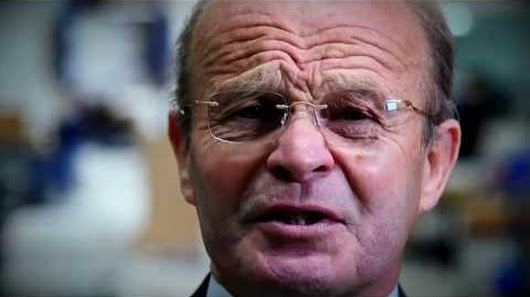“Failing to plan is planning to fail”
This is a phrase that seems to have been attributed to a number of history’s great speakers and thinkers in addition to Franklin, and yet it is nigh on impossible to plan for every one of a business’ eventualities. An exit, however, can always be planned for to some extent, and a business without a good exit or succession plan may not fail, but may cause headaches for the entrepreneur, their families or employees.
“‘In this world nothing can be said to be certain, except death and taxes”
Whilst death is always going to be certain, the Inheritance Tax (IHT) arising before or after your death is very much able to be planned for. Business Relief (BR, formerly known as Business Property Relief) is valuable as it reduces the IHT payable on transfers of business property either during your lifetime or on your death under your Will or intestacy by 50 per cent or 100 per cent depending on the type of property transferred.
Watch the video below on Inheritance Tax
Usually, when a gift is made to another individual, the value of the gift in excess of the donor’s nil rate band is chargeable to IHT should they not survive the gift by seven years. If a gift is made to a trust, IHT may be payable immediately. If BR is available, the taxable value of the transfer can be reduced to nil, such as in the case where shares in an unlisted company are transferred. Provided the property continues to benefit from BR whilst it is in the trust there will be no ongoing charges to IHT and the value of the property transferred may be outside the scope of UK IHT forever and provide for future generations, subject to certain conditions being met.
Further reading on exit planning
- How to choose the right exit strategy
- Planning an exit strategy? Why profile needs to be on the agenda
- Building a business with an exit strategy
In order to qualify for BR the property must be trading, and there cannot be a binding contract for sale in place. You should therefore ensure that where trusts are being used as part of planning for an exit through a business sale, the shares in the business are transferred before a binding contract for sale is entered into.
Watch the video on business property relief
In the event that you die prematurely, you may want the comfort of knowing that your loved ones will be taken care of with the value of the business you have worked so hard to establish. Your loved ones may not be able or willing to take over the business, and so simply inheriting the shares in the business may not be of much use to them. In this instance, ensuring the company, or other shareholders, have the funds to buy the shares and will do so from your estate upon your death, would be preferable.
The funds for this purchase could be provided by life insurance. However, it is important to ensure that the arrangement is not considered a binding contract for sale. Cross option agreements, where either the executors of an estate or the company and surviving shareholders can trigger a sale and purchase of the shares for either a specified value or a value based on a specified formula, usually contained within a shareholders’ agreement, can be used for this purpose.
“Wealth is not his that has it, but his that enjoys it.”
Entrepreneurs’ Relief (ER) allows a shareholder who holds five per cent or more of the shares and voting rights in a company to pay Capital Gains Tax (CGT) on a disposal of those shares or other qualifying assets at a rate of 10 per cent (up to a lifetime limit of £10 million), a considerable saving for higher rate tax payers over the standard rate of 20 per cent, or 28 per cent for gains from residential property. In order to qualify the company must be trading and therefore cannot be an investment company, and you must be an employee or director.
Investors’ Relief may allow an investor to benefit from a 10 per cent CGT rate even if they are not an employee or officer of the company and/or do not meet the minimum shareholding requirement of Entrepreneurs’ Relief. This is likely to be particularly useful for ‘angel investors’ who do not receive remuneration but give the company advice and provide early funding.
Either of the reliefs can be combined with a lifetime gift or sale to family members or a trust as described in the section above as part of a holistic tax efficient exit plan to truly maximise the amount your receive for all the hard work you have put into a business.
“If a man empties his purse into his head no one can take it away from him. An investment in knowledge always pays the best interest.”
Many businesses do not achieve their full potential sale price as potential buyers are concerned that the success of the business will not continue once the founding entrepreneur has left. Lining up a successor early on can make a significant difference to the future value of a business, whether that is a family member or a person from existing management.
“Employ your time well, if you mean to get leisure.”
Whether you plan to sell your business or pass it on to family or employees, putting some time into succession planning at the early stages really can make a difference to the overall success of the company, and ensure you are able to reap the rewards of your hard work.
Harvey Bowden, founder of water softening company Harvey Water Softeners discusses how he passed on his business to the next generation.

Over the last four years I’ve transferred the leadership of the company from me to my son Casey and then to the company’s first external MD Martin Hurworth.
Finding the right person took a long time, because we knew how important it was. I tend to seize opportunities as they arrive rather than overly plan things – we knew straight away that we’d found the right person in Martin Hurworth so we acted on that instinct. Martin joined us as technical director first of all. He impressed so much in that role that we thought ‘this is the leader that this company needs’. Two years later we’d made him MD.
Financially, the impact has been dramatic as turnover is up from £11.5 million in 2012 to £26.5 million in 2017. Our workforce has more than trebled to more than 300, factory output has more than doubled too, and we’re planning to move to a brand new headquarters at the nearby Fairoaks Garden Village to allow us to continue growing.
“Once you’ve started handing it over you should step back quickly to let the new generation do it their way”
If growing your business is what will make you happy – and it isn’t right for every founder – then take your time to find the right person; get it wrong and you’ll rue the day, get it right and it’s the easiest thing in the world.
This article was written by Dominic Cole, Associate, and Peter Daniel, Partner, in the Tax and Estate Planning team at Collyer Bristow LLP







